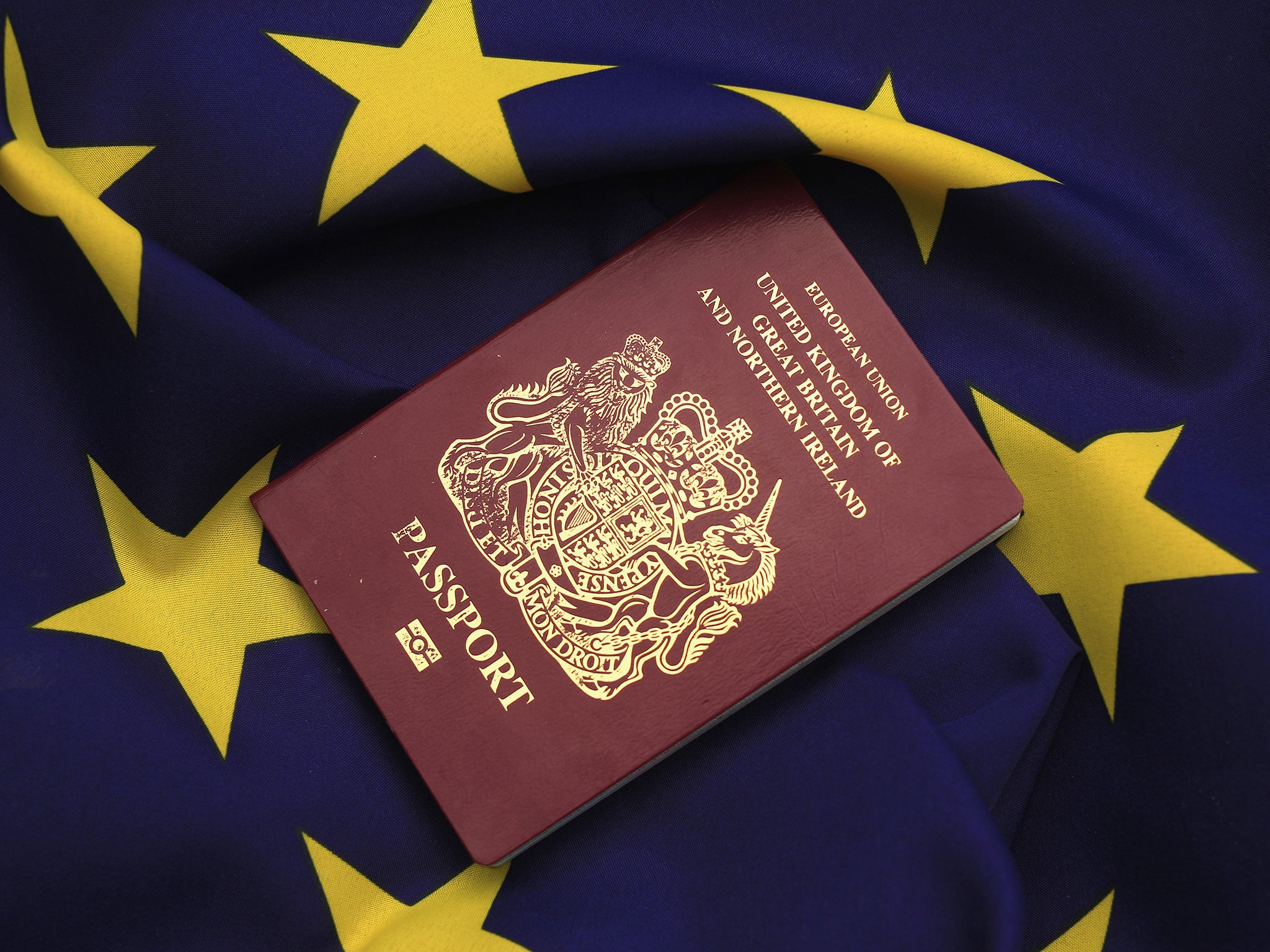British expats living outside of UK for more than 15 years will not be able to vote in EU referendum, high court rules
The high court did not accept a challenge brought against the '15-year rule' that prevents British citizens who have lived abroad for more than 15 years from voting in the referendum on 23 June

Your support helps us to tell the story
From reproductive rights to climate change to Big Tech, The Independent is on the ground when the story is developing. Whether it's investigating the financials of Elon Musk's pro-Trump PAC or producing our latest documentary, 'The A Word', which shines a light on the American women fighting for reproductive rights, we know how important it is to parse out the facts from the messaging.
At such a critical moment in US history, we need reporters on the ground. Your donation allows us to keep sending journalists to speak to both sides of the story.
The Independent is trusted by Americans across the entire political spectrum. And unlike many other quality news outlets, we choose not to lock Americans out of our reporting and analysis with paywalls. We believe quality journalism should be available to everyone, paid for by those who can afford it.
Your support makes all the difference.Expats who have been living outside of the UK for more than 15 years will not be able to vote in the EU referendum, the High Court has ruled.
A legal challenge was brought by 94-year-old Second World War veteran Harry Shindler, who lives in Italy, and Belgian resident Jacquelyn MacLennan, against the '15 year rule' in the EU Referendum Act 2015.
The act states that British citizens living abroad, anywhere in the world, for more than 15 years will not be able to vote on whether the country should remain in or leave the EU on 23 June.
Mr Shindler and Ms MacLennan argued that the rule illegally denied them the chance to vote, saying it unlawfully restricted their right to freedom of movement under EU law.
Both have lived outside of the UK for more than 15 years now.
But Lord Justice Lloyd Jones ruled that it did not restrict their rights and rejected their application for judicial review.
Aidan O'Neill QC, who represented Mr Shindler and Ms MacLennan, had told the court that the 15-year rule was arbitrary, at a hearing earlier this month.
He said the Government was basing the referendum's franchise on those “with the closest of links to the UK” - but that no one had a greater interest in the outcome of the vote than the two million Britons living outside of the UK elsewhere in Europe.
Victory for the 'Leave' campaign could lead to Mr Shindler and Ms MacLennan becoming “resident aliens” in Europe, he added.
“Without British membership of the EU these two British citizens will no longer be EU citizens.”

Mr Shindler and Ms MacLennan's lawyers confirmed they will now appeal directly to the UK's Supreme Court.
Richard Stein, from law firm Leigh Day, said: “We now intend to take the legal battle to the Supreme Court, the highest court in the country, so that all British citizens living elsewhere in the EU can be part of the democratic process to vote in this referendum, which will have a very real impact on their lives.
“We believe that there is precedent for fast-track legislation being put through Parliament in a matter of days in response to court judgment, so there would be no need for the referendum to be delayed if the Supreme Court rules in our favour.
“Since this is a vote in a referendum rather than in an election there is no need to link the votes of Britons in Europe to any particular constituency in the UK.
“Possession of a British passport should be enough.”
Ms MacLennan said: “The Government made a manifesto commitment to enfranchise all British citizens, no matter how long they have been abroad, saying that they thought that 'choosing 15 years, as opposed to 14 or 16 years, is inherently like sticking a dart in a dartboard' and that 'if British citizens maintain British citizenship, that brings with it rights, obligations and a connection with this country, and that that should endure.'
“We just want the Government to keep its promises.”
A Cabinet Office spokeswoman added: “The Government welcomes the ruling of the High Court in this case.
“The franchise for the EU referendum was debated, considered and agreed by both Houses of Parliament and is enshrined in law.”
British citizens who have lived outside of the UK for 15 years or less can register to vote in the referendum by clicking here.
Additional reporting by PA
Join our commenting forum
Join thought-provoking conversations, follow other Independent readers and see their replies
18Comments